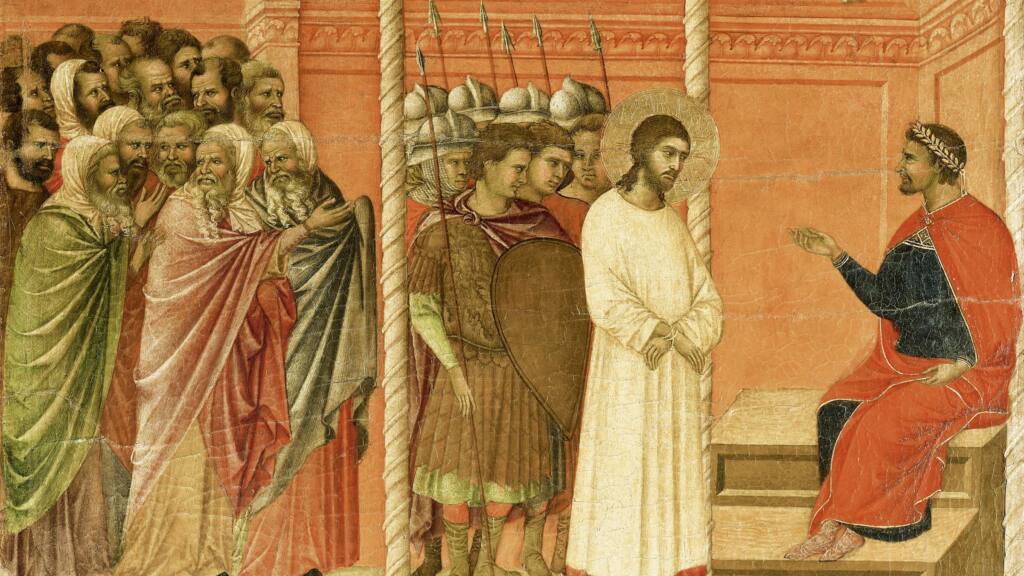WelCom April 2022
Fr Brian Fennessy, Parish priest, Selwyn Parish, Lincoln

During the reading of St John’s Passion on Good Friday we hear Pontius Pilate’s comment to Jesus: ‘What is truth?’
This is also a serious contemporary question. The emergence of the milieu of ‘misinformation’ and the current rhetoric of President Putin of Russia brings us face-to-face with this same question.
The War in Ukraine is an unravelling of the web of truth and ‘misinformation’.
Dovetailed with Pilate’s question is the account of the Fall of Adam and Eve in Genesis chapter 3.
In this account, we are told that the serpent is cunning; he twists truth and sows the seed of doubt.
In response to the serpent’s arguments, Eve distorts God’s instruction. In Genesis 2:17, God instructed Adam ‘of the tree of the knowledge of good and evil you shall not eat’. And at this stage, in Chapter 2, Eve had not been created from Adam’s rib.
However, in Genesis 3:4, Eve distorts God’s word by adding to God’s directive. She told the serpent that God’s directive was they ‘shall not eat of the fruit of the tree which is in the midst of the garden, neither shall you touch it’.
However, God did not say ‘neither shall you touch it’.
Following this dialogue, the serpent adds a glossy temptation.
I see a parallel of Eve’s distortion of the truth with Putin’s rhetoric when he labelled the leaders of Ukraine as neo-Nazis. Then, two weeks later, he sowed doubt about whether Ukraine is developing chemical weapons. Since then, there have been other distortions of the truth about Russia’s invasion of Ukraine.
Distorting the truth makes it easier for ourselves to submit to the temptation.
Ukraine is suffering as a result of Putin’s desire for power and control justified by distorting the truth.
As we continue to read the Book of Genesis, we read that prior to Cain killing Abel, God warned Cain that ‘sin is couching at the door; its desire is for you, but you must master it’.
Temptation and falling into sin are a reality, but we are also told that we ‘must master it’; there is free will.
As we read John’s Passion on Good Friday – let us endeavour to apply God’s word to our contemporary situation.
During his interrogation by Pilate, Jesus said that he came ‘into the world to bear witness to the truth’.
As difficult as it may be, this is our mission: to also bear witness to truth.
Anzac Day assists us to acknowledge our identity and heritage, but it also affirms New Zealand’s pledge to uphold peace, justice, and the well-being of people. Peace and unity are the reward for respecting human rights, human dignity, and justice.
New Zealand has a proud history of endeavouring to bring reconciliation to foreign conflicts as well as slowly resolving past injustices within our own country.
During his interrogation by Pilate, Jesus said that he came ‘into the world to bear witness to the truth’.
Jesus’ explanation of his mission and Pilate’s question gives us the two sides of the coin.
As individuals, on the local scene or on the world sphere, we have a dilemma whether to bear witness to the truth or not.
If we don’t, the consequences will be damaging to ourselves, and to others, as well as cutting-off our relationship with God.